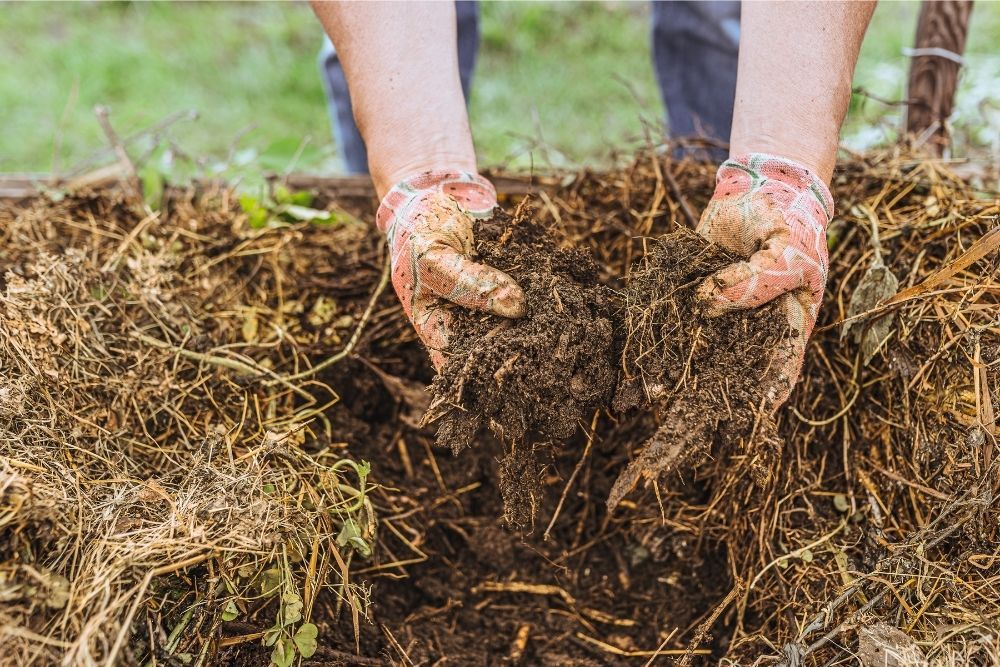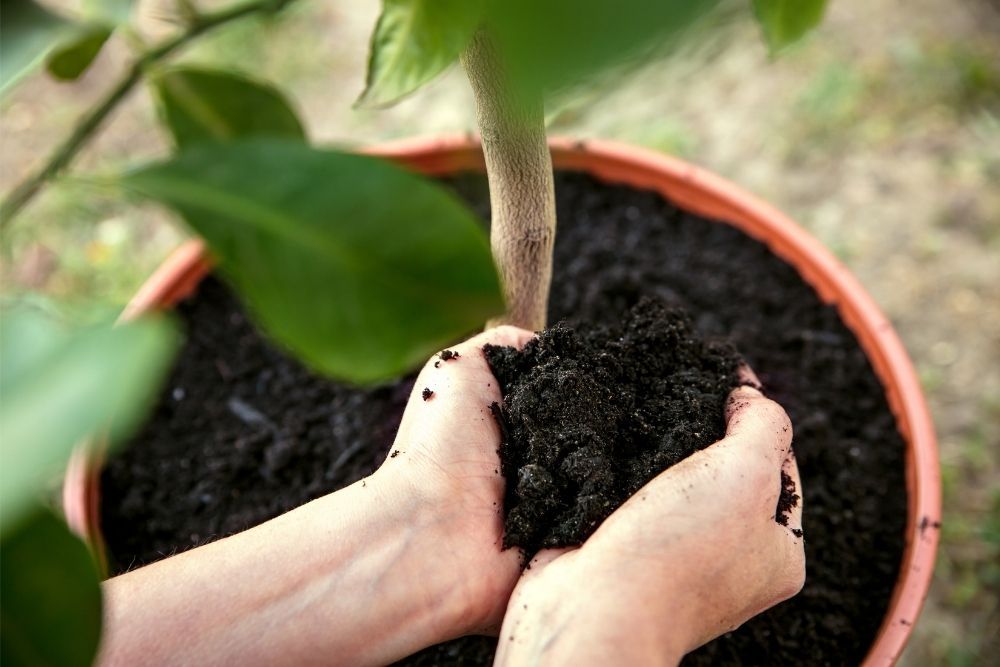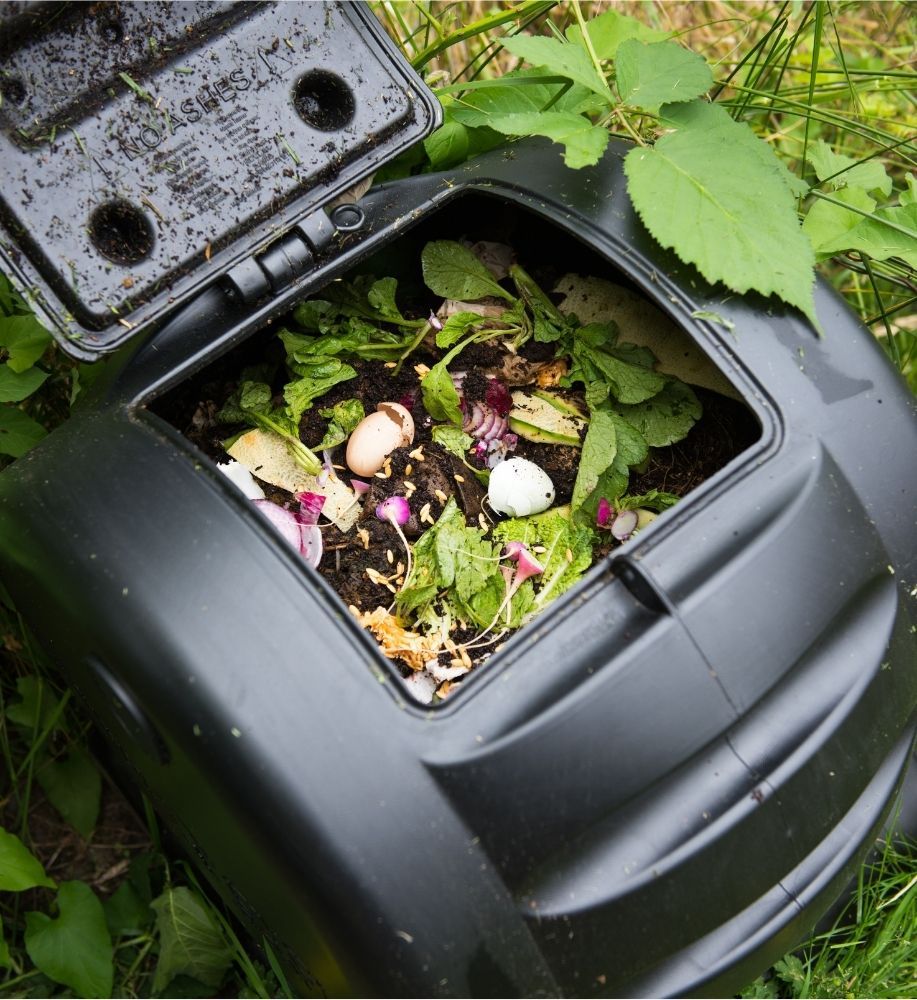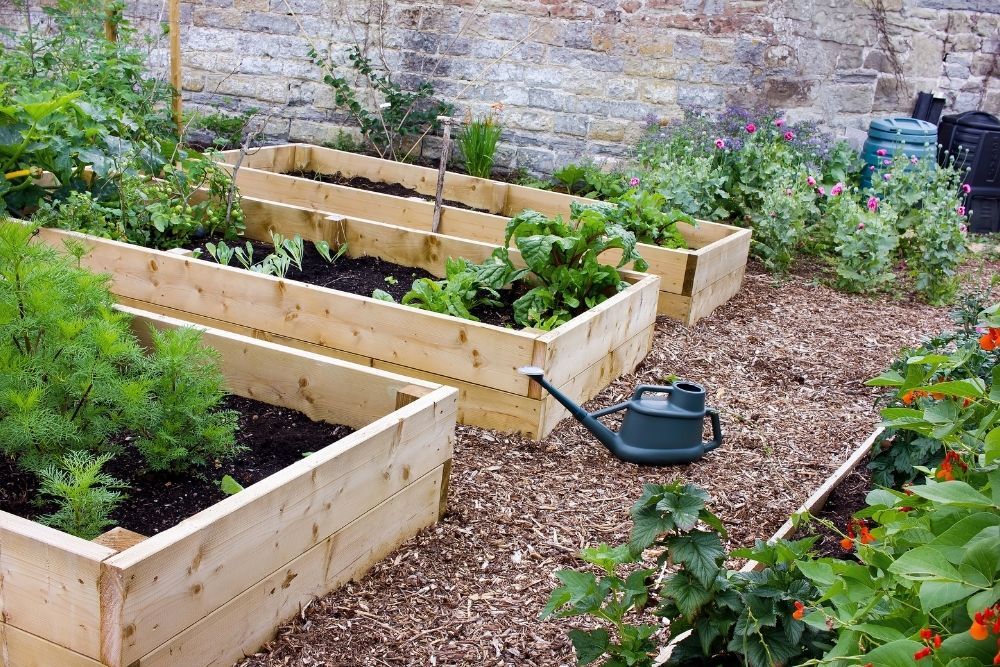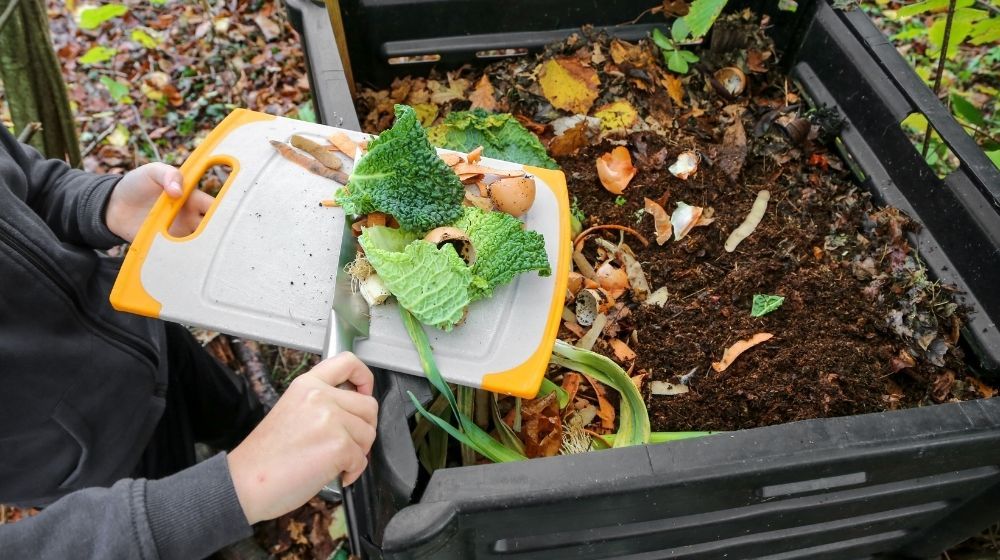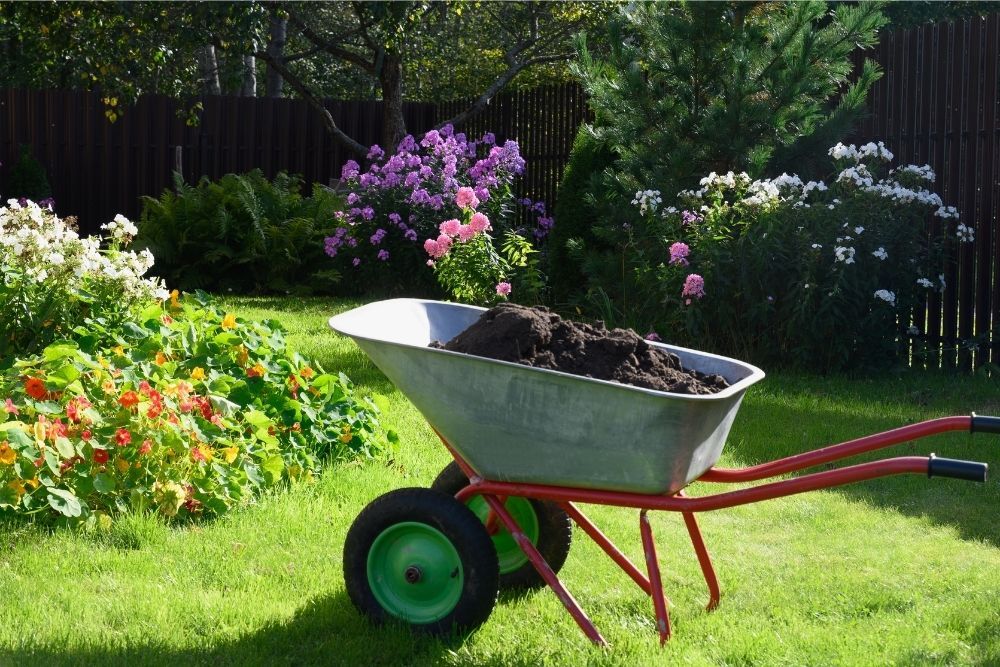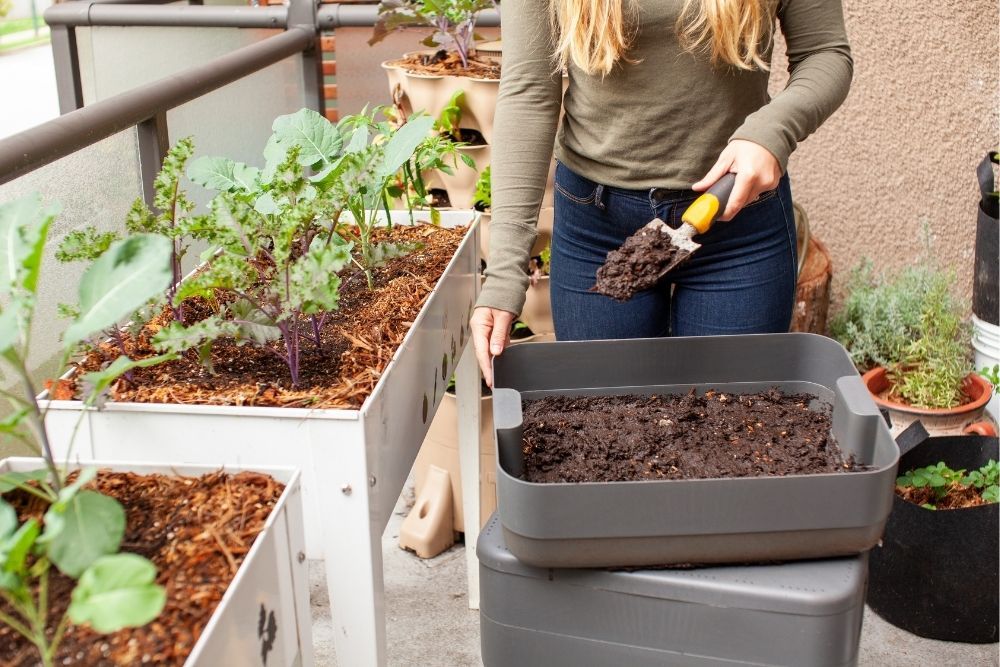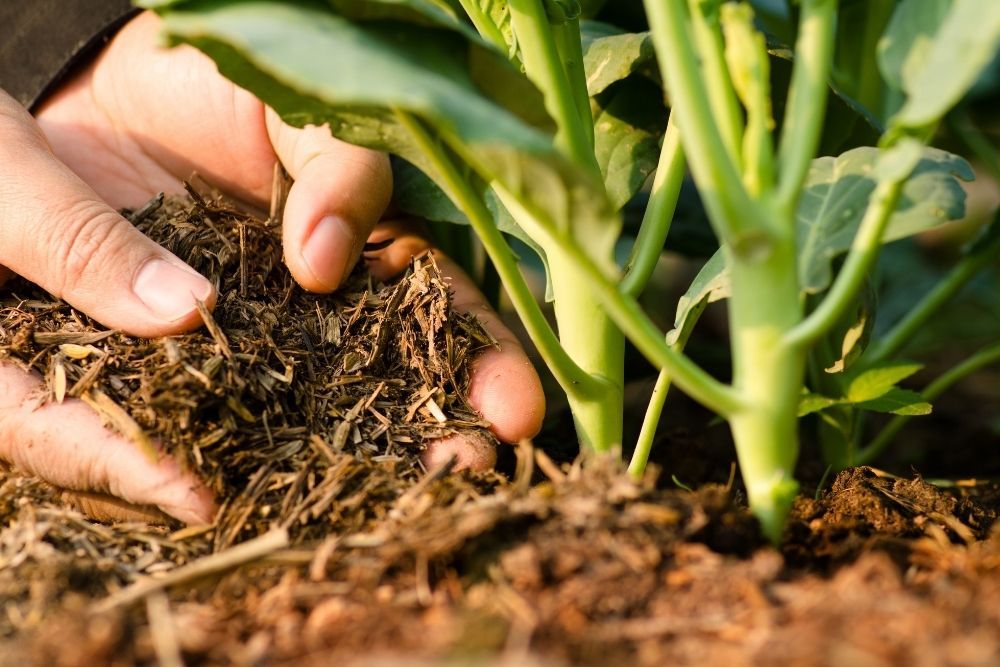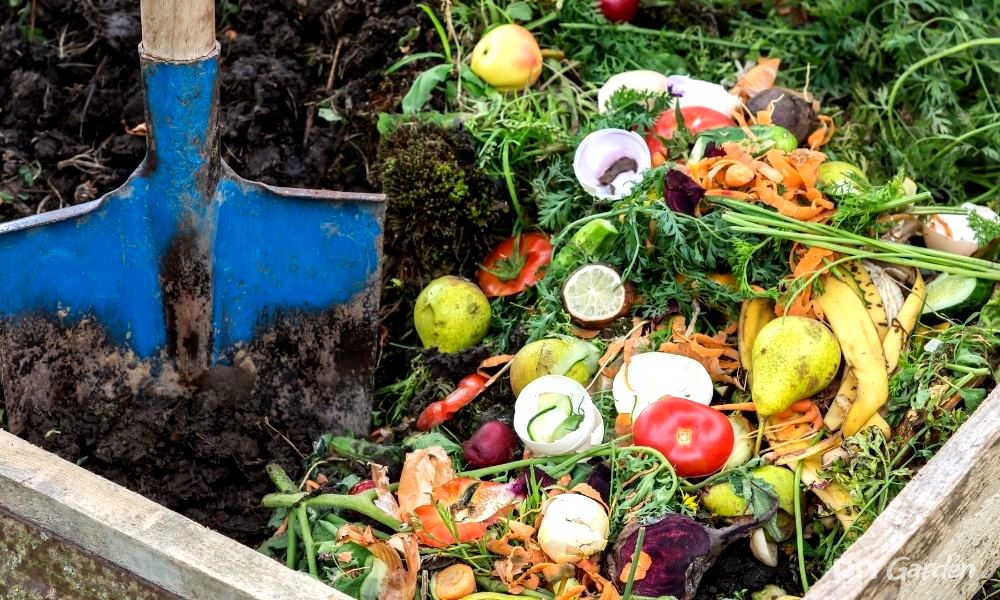
Compost is a magical thing. It takes our unwanted, rotting food and nourishes a new generation of growth. Here, we’ll talk about the 35 (yes, 35!) composting benefits. We’ll discuss the many ways soil benefits from composting before moving on to how compost benefits our environment.
After that, we get down to the wonga – does composting save you money? To finish off, we’ll explore the impact of composting not just on you but on the biodiversity around you.
Benefits of Composting for Your Soil
1. Compost Improves Soil Structure
Compost contains organisms that break up the soil. This creates small gaps within the soil, which allows air to flow more freely.
These organisms also bind clay, silt and soil particles together in a process called aggregation. This gives the soil its rich, dark colour and crumbly consistency. Soil aggregation is a direct indicator of soil health and quality.
2. Compost Manipulates Soil pH
Compost naturally neutralises soil. It increases the pH level of acidic soil and reduces the pH of alkaline soils. It does this by absorbing the soil’s ions.
You can also use compost to manipulate soil pH, making it more acidic or basic. If you have acid-loving plants or plants that desperately need alkaline soil, all you need is compost.
Just add acidic organic materials such as oak leaves and pine needles to increase the soil’s acidity. Aerobic respiration will make your soil more basic, so if you’re after more alkaline soil, turn your compost!
If you want to know the pH of your soil, see our recommended soil testing kits here!
3. Compost Increases Soil Moisture
Compost is like a sponge; it’s incredible at retaining water. In fact, every 1% of organic matter can hold over 75,000 litres of water!
Compost has also been shown to increase water retention in sandy soils by 2.5 times. Improving the moisture of your soil is an essential part of gardening, as it provides more water for your plants which helps them thrive.
4. Packs Soil Full of Nutrients
Compost is packed full of nutrients, including nitrogen, potassium and phosphorus. When combined with soil, the compost’s nutrients significantly improve plant growth.
Compost is particularly beneficial for growing valuable vegetables and fruit, as these require nutrient-rich soil.
Environmental Benefits of Composting
5. Compost Increases Plant Growth
By providing more water, nutrients and air, compost gives plants all of the vital resources they need. And the improvements don’t stop there. As compost breaks up the soil, giving it a better structure, plants develop more extensive, healthier root networks.
6. Lessens Plant Fatality
Plants growing in compost are typically healthier due to the ample resources made available to them. This doesn’t just help them to grow; it also prevents disease.
Healthy plants are better at detecting diseases, which gives them a greater chance of producing the disease-fighting chemicals that prevent diseases from damaging the plant.
7. Gives Plants Nutrients When They Need Them Most
Compost slowly releases nutrients, providing a steady stream for more extended periods. This makes it a better choice than shop-bought fertilisers, which release their nutrients all at once.
Compost also contains some nutrients in tiny amounts, such as boron. These nutrients are often lacking in chemical fertilisers.
8. Compost Reduces Methane Production
As organic matter breaks down in a compost heap, aerobic respiration occurs. During this process, methane-producing microbes aren’t active. They only become active when oxygen isn’t readily available, like in landfills.
9. Lowers Carbon Dioxide Levels
Compost sequesters carbon dioxide from our atmosphere; it removes it and stores it in the ground. And it’s not a small amount, either.
A 2018 study focusing on various Californian soil types found that a ¼ of an inch of compost removed a significantly higher level of carbon from the atmosphere than untreated soil. In fact, it removed an additional 900 pounds of carbon per acre.
10. Keeps Greenhouse Gases Out of Landfills
Organic matter degrades at a much slower rate in landfills. Landfills are oxygen-poor environments, so decomposition occurs through anaerobic respiration. This activates microbes that produce methane, the most hazardous greenhouse gas.
In 2020, the Waste and Resources Action Programme revealed that UK households accumulate 4.5 million tonnes of food waste every year. For every tonne of organic waste dumped at a landfill, one tonne of carbon dioxide is released. That’s 4.5 million tonnes of carbon dioxide being pumped into our air annually.
Disposing of household food waste in compost heaps will keep organic matter out of landfills and reduce greenhouse gas release.
11. Improves Air Quality
There are many harmful chemicals in shop-bought fertilisers, sprays, and weed killers. Burning organic waste releases these chemicals into the atmosphere.
Putting organic waste in a compost bin rather than burning it reduces this chemical release. What’s more, compost acts as a bio-filter, actively removing these dangerous chemicals from the air.
12. Ponds, Lakes and Springs Benefit from Composting
Because of the compost’s incredible water retention capabilities, water can travel through the soil and layers of impervious rock and enter local lakes, ponds and springs.
These different layers filter the water, so it has undergone thorough filtration by the time it reaches our water sources.
13. Compost Cleans Our Oceans
The filtered water that enters our local water sources ends up in our oceans. This makes the ocean water cleaner, with less infiltration from pollutants.
Compost also reduces the prevalence of water runoff, whereby water from the ground’s surface (such as rainwater), along with harmful chemicals from fertilisers and pesticides, runs into local water sources.
14. Decreases Harmful Erosion
Erosion is reducing farmable land at an astonishing rate. When the soil has poor water retention capabilities, rainwater sits on the ground’s surface and eventually travels downhill, taking a layer of topsoil along with it.
After repeated occurrences of this, the land begins to erode. Compost reduces this by soaking up all of the excess water.
15. Composting Eliminates Agricultural Waste
If you think you’ve got a lot of organic waste, imagine owners of agricultural land. UK farms alone produce around 3.6 million tonnes of food waste annually.
Composting provides an easier, cheaper option for farmers to dispose of organic agricultural waste.
16. It Benefits Stormwater Management
Compost is used in conjunction with other stormwater management procedures to reduce the impact of excess ground-level water. It’s utilised due to its ability to diminish water runoff and improve vegetation.
17. Minimises the Use of Chemical Fertilisers
You don’t need chemical fertilisers if you use compost. People buy chemical fertilisers for their potassium, phosphorus and nitrogen content. But compost naturally contains all of these; this makes chemical fertilisers redundant.
Economical Benefits of Composting
18. Composting is Cheap
Anyone can compost, regardless of their budget. All you need is space for a compost heap and a receptacle to keep it in.
You can either buy a compost bin or do some simple DIY, creating one out of pallets, a plastic container, or even wire.
19. Lessens Farmers’ Production Costs
Compost negates the need for chemical pesticides and fertilisers, which saves farmers a whole load of money. When using low water-retentive soil, farmers have to splash out on water costs too. Compost’s water retention saves the day yet again!
20. Greater Agricultural Yield
And it’s not just about the savings. Compost actually makes farmers more money, as the organic matter and improved soil structure increases annual yield.
21. Reduces Waste
Composting turns an often-annoying form of household waste into nutrient-rich organic matter that is beneficial for you, your plants and the environment.
It means you’re throwing less away, which reduces your carbon footprint and the harmful chemicals entering our atmosphere.
22. You Spend Less on Food
Chucking food waste in the bin and forgetting about it is almost effortless. But if you’re disposing of it in a compost heap, you begin to see just how much you’re throwing away.
Becoming more conscious of your waste makes you more likely to reduce the amount you’re buying.
23. Lower Disposal Costs
We have to pay to get rid of the millions of tonnes of organic waste we accumulate. And this is no small feat, costing around £10.2 billion annually.
Composting combats this issue. It reduces waste disposal, thus lessening transportation costs to landfills and incinerators.
24. Composting Opens Up Jobs
The question is, are there more jobs in manufacturing compost than there are in incinerators and landfills? Yes!
Landfills hire 50% fewer workers than the compost manufacturing industry. What’s more, manufacturing compost opens up 4x the jobs that incinerators do.
25. Strengthens Food Systems
There are now council-run community composting schemes that enable local communities to decide what to do with their organic waste. Different schemes work in various ways. Typically, the compost produced is distributed to enrich the crops grown by local food providers.
26. Composting Gives Us a Greener Mindset
Composting isn’t just about breaking down organic matter. It’s about re-establishing a connection with the earth and reacquainting ourselves with the beauty around us.
Nature has a wonderful way of recycling everything – we humans could learn a thing or two from this!
27. Saves Water, Fuel and Energy
You save water when you’ve got compost. Because it stores so much water, it provides a consistent supply for your plant babies. So put the watering can down!
By allowing the organic matter to decompose in your back garden, you’re reducing the fuel and energy put into transporting this matter to landfills.
Biodiversity Benefits of Composting
28. Compost Attracts Wildlife
Composting has a significant impact on biodiversity. It doesn’t just attract the organisms underground (worms, bacteria, fungi and insects); it’s also a source of interest for our winged friends.
29. Rids the Soil of Pests, Pathogens and Weeds
Compost is like an organic pesticide. The many nutrients it contains protects plants against pests by making them healthier.
Although compost doesn’t get rid of pathogens completely, it alters the microbe environment of the soil, lessening the likelihood that these microbes will have detrimental effects on the plants.
30. Fills the Soil With New, Helpful Organisms
Soil needs microorganisms. These little helpers work through the soil, creating air pockets along their way. And more air = quicker decomposition.
Compost contains fungi, protozoa and bacteria, all valuable microorganisms that improve the soil and protect crops against diseases.
Health Benefits of Composting
31. Compost Produces Better Food
Compared to the olden days, before chemical pesticides and fertilisers were a thing, today’s crops seriously lack nutritional goodness. This is all because the soil is no longer nutrient-rich.
But then compost comes along. It’s jam-packed full of nutrients and makes these readily available to plants. This produces food that’s nutrient-rich and of better quality.
32. Reduces Human Diseases
Dirty water is a severe problem, even to this day. One person dies every 10 seconds because of unclean, polluted water.
It doesn’t just take compost to fix this problem, but it’s a start. Compost lessens the impact of human diseases by filtering the water, making fertilisers redundant, and diminishing water runoff.
33. Composting Improves Mental Health
Spending just 2 hours a week outside can significantly improve health and wellbeing. Studies reveal that frequent gardening reduces the symptoms of anxiety and depression. Composting gets you out in the garden regularly, thus improving your mental health.
Environmental grief can get us all down at times. Feeling like you’re contributing to a greener future can create a sense of purpose and improve self-worth.
34. You’ll Have Fun!
Composting has all of these benefits, and it’s fun, too. Win-win! Watching your organic matter degrade before your very eyes and then witnessing your plants thrive can feel like a real accomplishment.
35. You’ll Save Time
Composting saves time on watering and stops you from having to go out and buy fertilisers and pesticides. You can put your feet up knowing your compost is doing the work for you!
Ready, Set, Compost!
Compost provides the soil with multiple goodies and helps save the planet, one biodegraded food item at a time. It nourishes our plants, giving them slow-release nutrients and all the water they could dream of.
Composting keeps us money-savvy and boosts our country’s economy. Harmful pests and pathogens are kept away from our edible treats and replaced with a whole host of beneficial organisms above and below ground.
It protects us, too, from damaging diseases and nutrient-lacking vegetables. It fosters a positive relationship with the earth and with ourselves.
Now you’ve seen all the benefits of composting, I can imagine you’re running out of reasons not to get involved. The pros outweigh the cons 10-fold. So, what are you waiting for?
